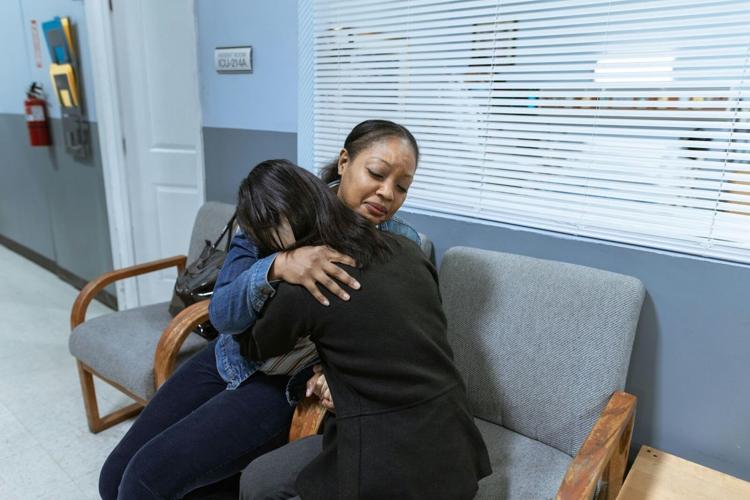Psychiatric urgent care centers are now a necessary alternative to emergency departments, offering more dedicated and immediate treatment to individuals who have mental health crises. Nonetheless, even the best clinical settings tend to be short of something that most of the patients require in times of fear, confusion, or even emotional collapse: the bond with a person who has gone through the same experiences.
Integration of peer support- the strategy of incorporating trained lived-experience individuals into mental health urgent care teams has become the frontline to change the manner in which urgent care is provided in the country.

Current Challenges in Psychiatric Urgent Care
Psychiatric urgent care mental health clinics are very crucial, yet they have challenges that they encounter and which restrict their efficiency unless they are effectively addressed.
- Extreme Patient Distrust and Anxiety: A significant number of patients are going to receive urgent care with the hope of not being misinterpreted or sent out of the facility, making it difficult to assess and plan treatment.
- Intensive Snapshots: Urgent care clinicians are required to make fast judgments with insufficient time and patient history.
- Weak in Terms of Follow-up and Continuity: Emergency facilities are prone to stabilizing patients but may not always follow up with them.
- Stigma and Stigma of the Mental Health System: Some do not want to seek help, citing the mere reasons that they will be labeled, hospitalized, or treated coldly.
- Excessive Clinical Staffing: Psychiatric intensive care teams have to handle high caseload, high turnover, and emotionally intense scenarios.
Peer support specialists in mental health urgent care can reduce all of these obstacles by making them aware of connection, time, and perspective that may be used in conjunction with clinical care.
What Are Peer Support Specialists?
Almost 1 in 4 Americans experienced some type of mental health condition in 2022. Peer support specialists consist of persons whose mental illness or addiction experiences have occurred and those who have experienced previous struggles that are trained to assist those in a comparable struggle.
Among other tasks, a peer specialist performs the following:
- Making the patients feel that they are understood, not judged.
- Empowering through the exchange of coping resources to deal with distress.
- Care navigation, referrals, and follow-ups.
The peers do not diagnose or administer any medical treatment as opposed to the clinicians. Instead, they are psychiatric urgent care models based on the recovery-focused model, prone to mutual respect and empowerment.
Models of Peer Integration in Urgent/Crisis Settings
Various systems have tried different peer support integration models. The most useful are the following:
- Peer Greeters in Intake and Triage: Peers greet patients on entrance and make them less afraid, and more willing to exchange information during assessment.
- Integrated Helping Team in Evaluation Teams: During the assessments, peers are seated with clinicians to bring additional insight and assistance in enabling patients to communicate their needs.
- Crisis Stabilization Groups Peer-Led: Brief, skill-based group sessions can stabilize patients within a short period of time and establish a feeling of community in a crisis unit.
- High-Risk Patient Peer Navigation: A system of continuous follow-up and interaction with peers can help patients, who get themselves into crises rather often, avoid a new crisis, as it results in more frequent visits to the emergency care unit, as well as more responsibility and consistency.
New models such as Mindul Care can be used to explain how clinical treatment plus peer-led support could augment the outcomes of stabilization and engagement.

Benefits of Integration
The introduction of peer support into psychiatric urgent care is beneficial to patients, staff, and the healthcare system in general.
- Trust and Engagement of the Patients
- Reduced Repeat Crises
- Developed Cultural and Emotional Competence
- Increased Patient Satisfaction
- Reduced Clinician Burnout
These advantages are indicative of the emerging research that clinical expertise plus lived experience results in improved outcomes compared to clinical-only research or lived-only research.
Addressing Common Concerns and Barriers
There are urgent mental care centers that are reluctant to incorporate peer support because they get scared of concerns that can be tackled through proper planning.
“Will peers cross professional boundaries?”
Certified peer experts are highly trained on ethics, boundaries, and crisis protocols. Understanding of the role will exclude redundancy with clinical work.
“Will peers tell too much about their experience?”
The value of peer training focuses on meaningful and restricted self-disclosure. Peers should not dominate the conversation and only share what is helpful.
“Can anyone with lived experience be safe to be involved in crisis settings?”
Peers are also trained to sustain their own recovery process and are controlled just like any other staff member. Some of them prosper in these positions and make them significant.
“What about the place of peers among the hierarchy?”
Effective programs involve peers as care team members and have well-designed communication channels and decision-making models.
“Will clinicians be reluctant to the change?”
The strong support is normally converted to skepticism when the clinicians become aware of the way in which the peers reduce their workload and enhance patient trust.
These obstacles should be overcome to enjoy the ultimate rewards of peer integration.
Incorporating peer support in psychiatric urgent care is not a novel trend but a caring overhaul of the crisis service mode of operation. Peer support is an evidence-based and more practical solution that can be applied to making sure that no one is left in a crisis, because mental health systems are constantly



(0) comments
We welcome your comments
Log In
Post a comment as Guest
Keep it Clean. Please avoid obscene, vulgar, lewd, racist or sexually-oriented language.
PLEASE TURN OFF YOUR CAPS LOCK.
Don't Threaten. Threats of harming another person will not be tolerated.
Be Truthful. Don't knowingly lie about anyone or anything.
Be Nice. No racism, sexism or any sort of -ism that is degrading to another person.
Be Proactive. Use the 'Report' link on each comment to let us know of abusive posts.
Share with Us. We'd love to hear eyewitness accounts, the history behind an article.